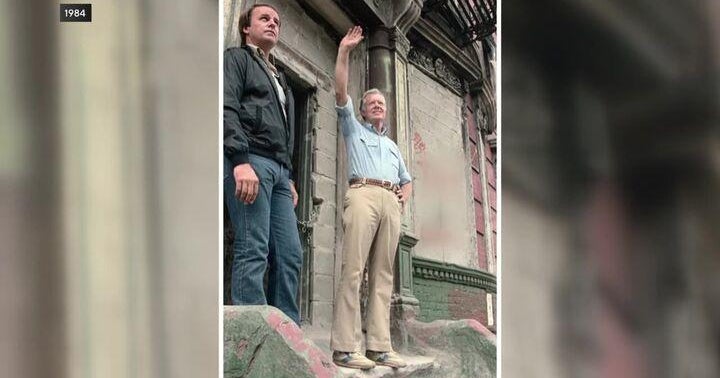CUNY Chancellor Dr. Felix Matos Rodriguez discusses unrest on campus and more in CBS News New York interview
NEW YORK — College students across the city are heading back to class, and a significant number of them are attending one of the 25 colleges that are part of the City University of New York system.
Dr. Felix Matos Rodriguez is CUNY's chancellor and the first Latino to lead the urban university. He sat down with CBS News New York's Kristine Johnson for a wide-ranging conversation.
Chancellor calls CUNY "the Ellis Island of educational opportunity"
"We're sort of the Ellis Island of educational opportunity," Rodriguez said. "We have 25 campuses, so we are in every borough. In every part of the city, CUNY is present. Our students mirror roughly the demographics of the city."
"So what we see on the streets, it's..." Johnson said.
"Is our classrooms, is our faculties, our staff, and we're very proud of that," Rodriguez said.
CUNY is the largest urban public university in the country. There are more than a quarter of a million students in CUNY. Sixty percent of CUNY students are the first in their family to graduate from college, and 75% graduate debt-free.
"For many of the students that attend CUNY, this is a matter of changing the direction for their family," Johnson said.
"If you think about the profile of our students, 40 percent of them were not born in this country ... 40 percent come from households that make less than $30,000 a year," Rodriguez said.
More than 80% of CUNY students opt to stay in New York after graduation.
"On the other end, 40 percent of all the new teachers in the New York City public high schools come from the City University of New York ... You go into a hospital, half the nurses also come from our programs," Rodriguez said.
Addressing unrest on CUNY campuses
Along with this educational opportunity, there is also a reckoning of the social and political issues students and the world are facing. Campus unrest is nothing new. Last spring, tensions over the Israel-Hamas war boiled over at local college campuses and led to violence, arrests and destruction.
"What was life like at CUNY last spring?" Johnson asked.
"The Middle East conflict plays out so heavily in our city ... It was natural that some of those tensions would be reflected on our campuses," Rodriguez said. "People in different camps were really not in good spaces ... People are not ready to sit down. We're getting now a different signal that people said, no, no, we need to."
The chancellor is adamant about allowing for freedom of expression, but within the construct of following established rules for civic engagement. A unique characteristic of most CUNY campuses is that they blend seamlessly into the city's landscape. Restricting access, as they are doing now at Columbia University, for example, is not an option for CUNY.
"We learned a lot from some of the things that did happen last spring," Rodriguez said. "I think being proactive in letting people know what the rules of the games are ... So the presidents have been sending guidelines to to the public safety teams, to the faculty and staff, and to the students."
"Looking back at history, this has happened before, right? What does it say about our present time and how do we make sure that we're okay moving into the future?" Johnson asked.
"Double down in our civic engagement. Double down on calling out hate. The universities are one of the right parts of getting this country to ... be able to disagree passionately, but not in this really incendiary way that we're seeing right now,"
"A lot more talking, less yelling," Johnson said.
"Absolutely, absolutely, yes. I'm all for that," Rodriguez said.
Students can expect a heightened security presence this fall, as Gov. Kathy Hochul met with more than 200 college and university officials to ensure there is not a repeat of the violence and destruction from last spring.




